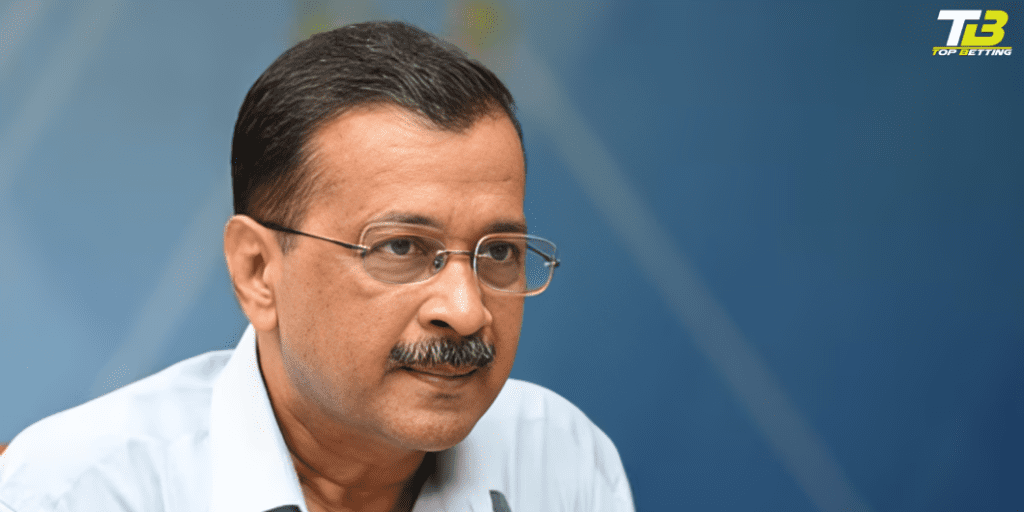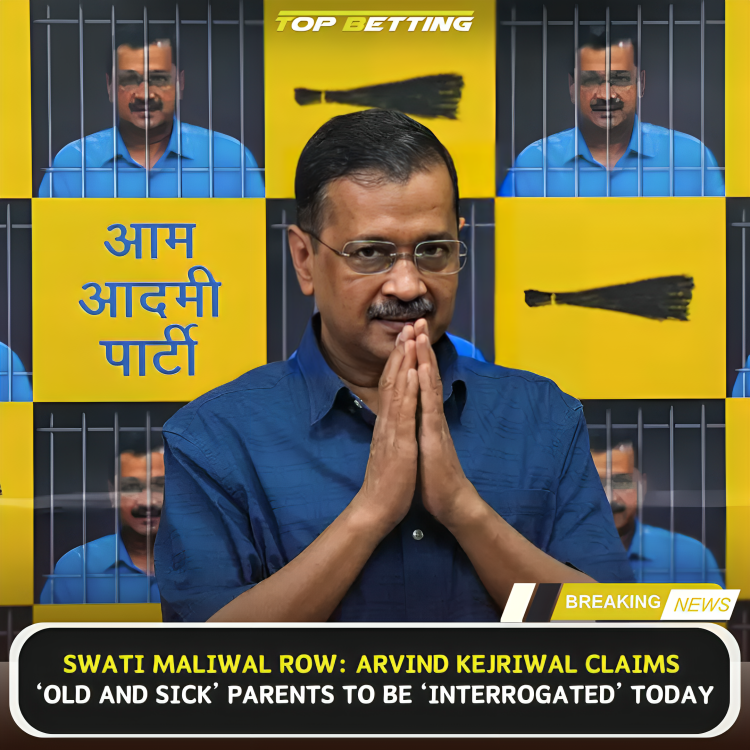
Kejriwal Claims Old and Sick Parents
Rajya Sabha member Swati Maliwal has claimed that Bibhav Kumar, Arvind Kejriwal’s personal assistant, kicked and assaulted her inside the chief minister’s home.
In relation to the alleged attack of AAP MP Swati Maliwal, Delhi Chief Minister Arvind Kejriwal stated on Wednesday that the police will “interrogate” his “old and sick parents” today.
Arvind Kejriwal posted on X, saying, “Tomorrow Delhi Police will come to interrogate my old and sick parents.”
Rajya Sabha member Swati Maliwal has claimed that Bibhav Kumar, Arvind Kejriwal’s personal assistant, kicked and assaulted her inside the chief minister’s residence.
The Bharatiya Janata Party (BJP) is accused of framing Arvind Kejriwal’s personal assistant in the case, according to the Aam Aadmi Party, which has sided with him. Leader of the AAP Atishi said that the BJP used an old ACB case as leverage to force Swati Maliwal to register the FIR.
It’s Bibhav Kumar who’s in custody.
In addition to Arvind Kejriwal’s parents, Sunita Kejriwal, his wife, may also be under investigation, according to ANI.
Swati Maliwal said that Kejriwal’s parents and wife were present at the alleged attack in her statement to the magistrate.
“She met them and then came out. ANI was informed by Delhi Police officials that “we are requesting two days to take their statement.”
Regarding the development, Atishi chastised Prime Minister Narendra Modi and the Delhi Police.
“Prime Minister Narendra Modi has dispatched Delhi Police to question Arvind Kejriwal’s elderly parents tomorrow. I would like to ask PM Modi and the BJP if they believe that 85-year-old patients raised their hands on Swati Maliwal. Arvind Kejriwal’s mother recently returned home after a lengthy stay in the hospital, and his 85-year-old father is unable to walk alone without assistance. Is the BJP aware of this?” she questioned.
Arvind Kejriwal interrupts his quiet.
On Wednesday, Arvind Kejriwal spoke out about the subject, stating that two accounts of the occurrence had surfaced and he sought a fair probe.
Arvind Kejriwal came under fire from Swati Maliwal for his initial response. He was accused by her of “assassinating my character” and of “unleashing the entire army of leaders and volunteers” against her.
“A thousand deaths befell Irony. I’m not at all sold on this,” she continued.
On Wednesday, Swati Maliwal asserted that there was a plot to “break me by leaking my personal photos”.
Maliwal allegedly tried to visit Arvind Kejriwal without making an appointment and caused a commotion, according to the AAP.
The controversy began with the accusations against Swati Maliwal herself. She has been a vocal advocate for women’s rights and has often found herself at odds with various political entities and individuals due to her outspoken nature and aggressive stance on issues related to women’s safety and rights in Delhi. Her role as the DCW Chief has put her in the spotlight, and she has garnered both support and criticism for her methods and decisions.
Arvind Kejriwal, a prominent political figure and the head of the Aam Aadmi Party (AAP), has come out in strong defense of Maliwal. He alleges that the interrogation of Maliwal’s elderly parents is an attempt to intimidate and harass her. According to Kejriwal, the authorities’ move to question Maliwal’s parents, despite their age and health conditions, is a deliberate tactic to put pressure on her and dissuade her from her continued activism and criticism of the government.
Kejriwal’s statements have ignited a broader debate about the use of power and authority to suppress dissent. He has accused the central government and its agencies of misusing their power to target individuals who are critical of their policies and actions. This incident, according to Kejriwal, is a clear example of how the state machinery is being employed to silence voices of opposition and criticism.
The situation has drawn reactions from various quarters. Supporters of Swati Maliwal and Arvind Kejriwal have condemned the actions against Maliwal’s parents, calling it inhumane and unjust. They argue that questioning elderly and ailing individuals is not only unethical but also sets a dangerous precedent for how dissenters and their families are treated in the country.
On the other hand, critics of Kejriwal and Maliwal argue that the law should take its course and that no one should be above scrutiny, regardless of their position or family background. They contend that if there are legitimate reasons for questioning Maliwal’s parents, those should be pursued within the framework of the law.
This incident is part of a larger narrative of tension between the Delhi government, led by the AAP, and the central government. The two have often been at loggerheads over various issues, ranging from administrative control to policy decisions. Kejriwal’s accusations against the central authorities reflect the ongoing power struggle and the politicization of administrative actions.

In conclusion, the row involving Swati Maliwal and the alleged interrogation of her parents has highlighted the contentious nature of politics in India. It underscores the challenges faced by activists and public figures who take on powerful establishments. As the situation develops, it will be important to monitor how it is resolved and what implications it might have for the broader discourse on governance, power, and dissent in India.











